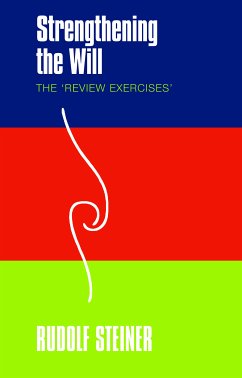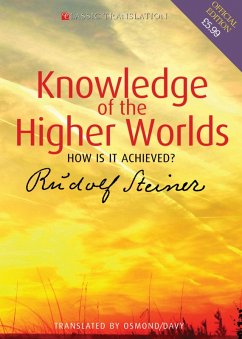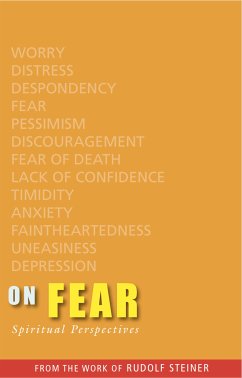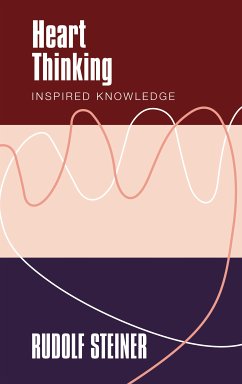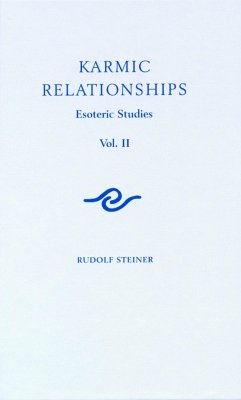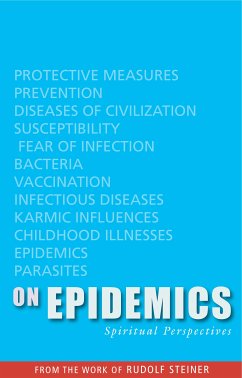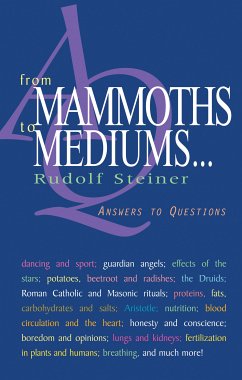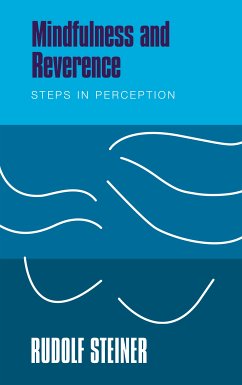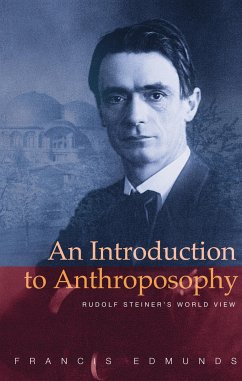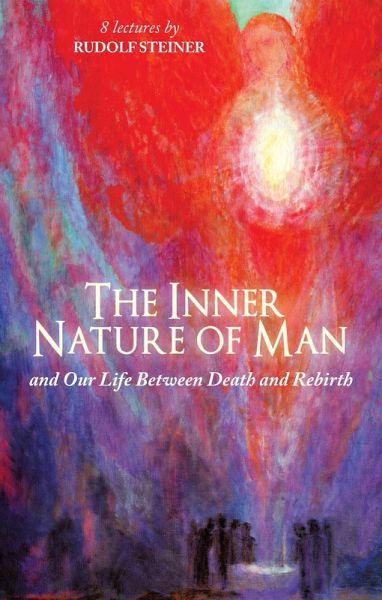
The Inner Nature of Man (eBook, ePUB)
And Our Life Between Death and Rebirth
Übersetzer: Meuss, A. R.

PAYBACK Punkte
0 °P sammeln!
'When we know how to enter deeply into the realm of the soul, we reach understanding of the harmony that exists between successive lives on earth and the whole of the physical world outside us.' - Rudolf Steiner. In these eight lectures, given during the Great War as thousands of young men were being killed in battle, Rudolf Steiner - the great initiate of the twentieth century - describes the dramatic reality of the spiritual worlds encountered by human beings after death. He speaks of the joys and sufferings experienced in those worlds by people of different character; the vision of the 'ide...
'When we know how to enter deeply into the realm of the soul, we reach understanding of the harmony that exists between successive lives on earth and the whole of the physical world outside us.' - Rudolf Steiner. In these eight lectures, given during the Great War as thousands of young men were being killed in battle, Rudolf Steiner - the great initiate of the twentieth century - describes the dramatic reality of the spiritual worlds encountered by human beings after death. He speaks of the joys and sufferings experienced in those worlds by people of different character; the vision of the 'ideal human being' that souls experience; the cosmic 'midnight hour'; the processes leading to rebirth in the world of the senses; the deeper causes behind such phenomena as materialism and criminality; and why, in the flesh, we lose our instinctive perception of the spiritual worlds. Steiner describes how knowledge of the spiritual realms, as well as the life beyond death and before birth, can be built on the foundations of modern science. Indeed, he speaks of mankind's involvement in science and its many achievements as necessary steps on the path towards a modern spirituality and true understanding of the soul, and describes in detail some of the methods by which direct perception of the worlds of soul and spirit can be developed.
Dieser Download kann aus rechtlichen Gründen nur mit Rechnungsadresse in A, B, BG, CY, CZ, D, DK, EW, E, FIN, F, GR, H, IRL, I, LT, L, LR, M, NL, PL, P, R, S, SLO, SK ausgeliefert werden.





